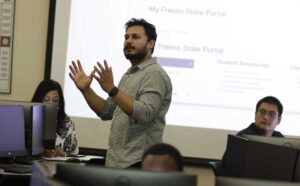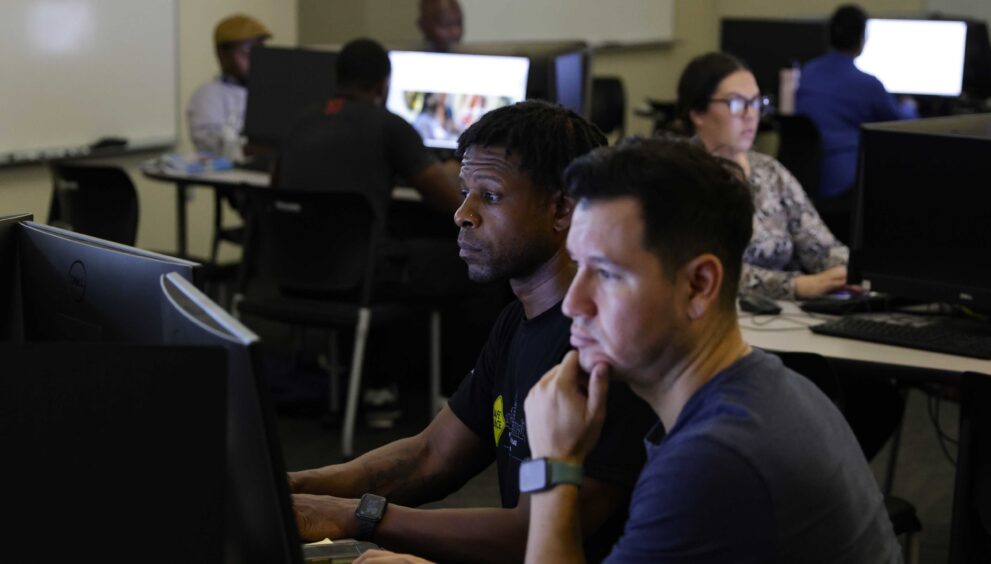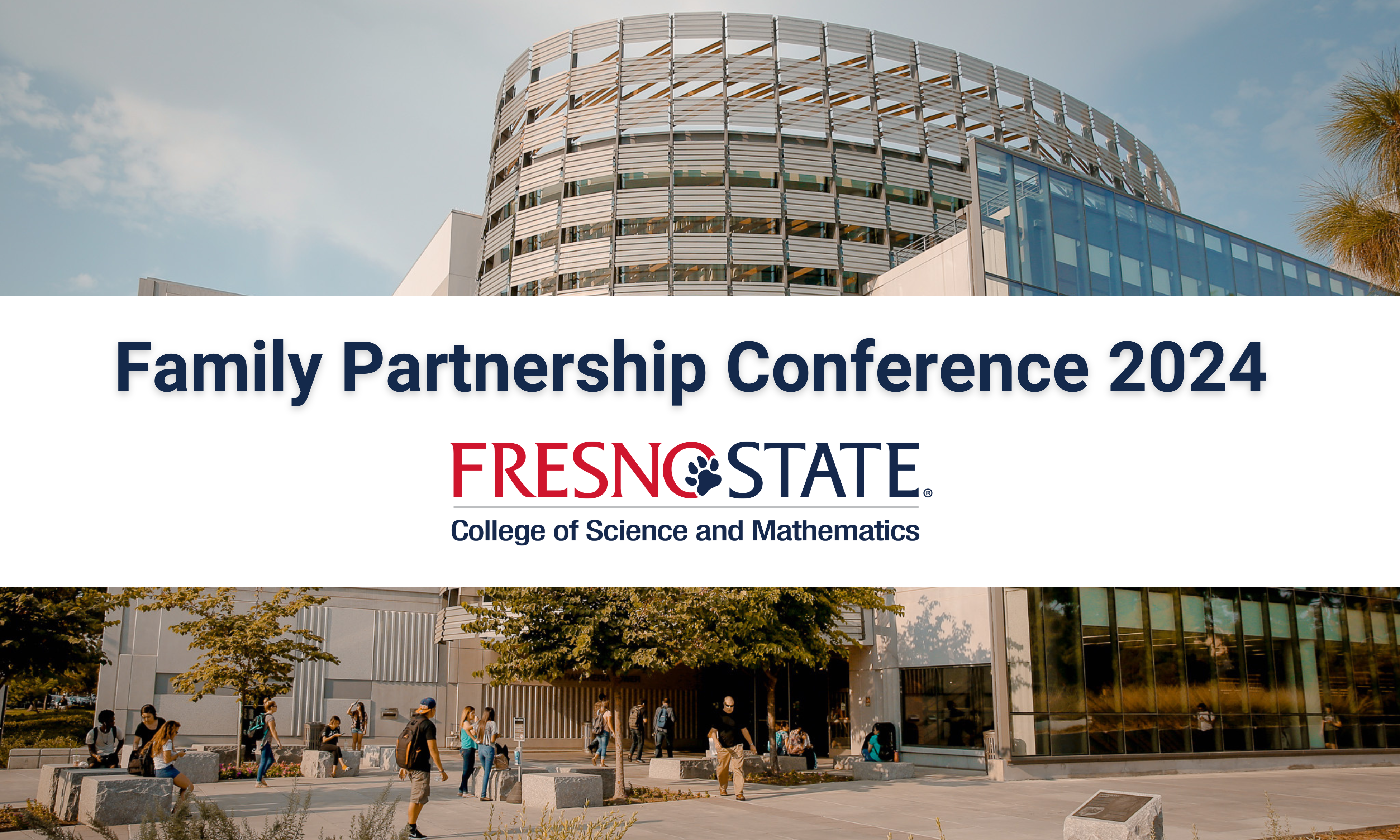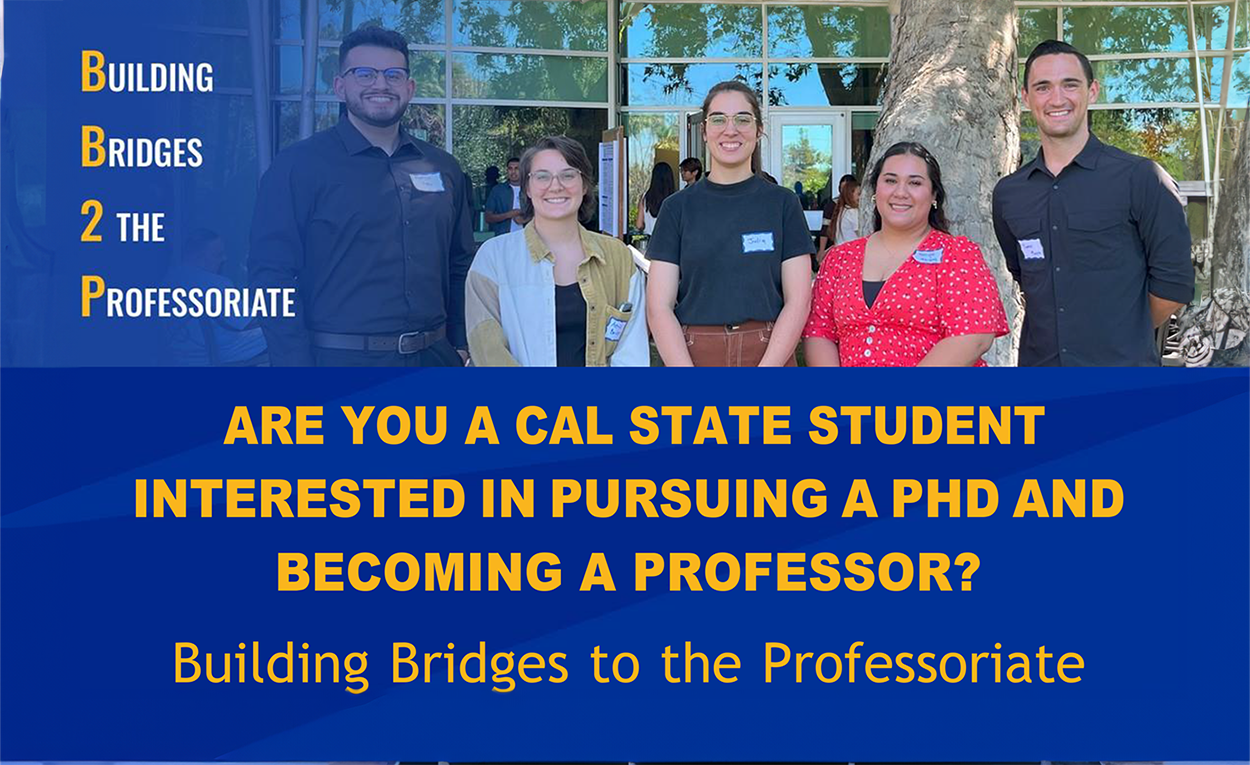Soft Start, a cybersecurity training program funded by a $2.4 million federal grant for Valley residents, kicked off at Fresno State on Sept. 6 with students from different professions and backgrounds.
Sam Ongeri, an experienced banker, described the class as well-thought-out and timely.
“My objective as a participant is that I come out with a basic understanding of cybersecurity, and apply the knowledge gained in stopping cybercrime, secure sensitive data and protect institutions against data breaches,” Ongeri said.
In collaboration with Fresno County Public Library and Fresno City College, Fresno State will offer a three-tiered cybersecurity training aligned with regional employer needs. The beginning and intermediate level classes will be free for qualifying residents, while the advanced certificate will be incorporated into the university’s regular course offerings under the College of Science and Mathematics.
“We have officially run out of space for that particular class, and I have to shut down the registration link,” Soft Start Project Coordinator Christine Thibodeaux said.

The Fresno State portion of the training is offered through the Department of Computer Science and the Division of Continuing and Global Education, and enrollment is already at capacity for the fall semester.
“We have officially run out of space for that particular class, and I have to shut down the registration link,” Fresno State Soft Start project coordinator Christine Thibodeaux said.
Thibodeaux said demand for the class exceeded their original goal, prompting her to look for ways to accommodate the extra students enrolled and kicking plans for bringing in the next cohort in high gear.
The Fresno State-based program is already accepting students for the second cohort, which starts in spring 2024.
“All of the advertising will be updated to the Jan. 31 start date,” Thibodeaux said.
Those interested can sign up for free using this link.
The 10-week, tuition-free program aims to create cybersecurity awareness in the Valley, providing participants with basic to advanced skill levels in the profession.
The course, offered weekly in two-hour sessions, aims to entice students to venture into cybersecurity and help reduce the nationwide shortage in the profession.
“My objective as a participant is that I come out with a basic understanding of cybersecurity, and apply the knowledge gained in stopping cybercrime, secure sensitive data and protect institutions against data breaches,” Sam Ongeri, Soft Start cybersecurity student.
About Soft Start

Soft Start is open to students from all majors and the public. The courses will be offered in three steps.
- Beginner level: For people with no cyber security experience at all
- Intermediate : For those with some cyber security experience who want to delve deeper into the field.
- Advanced Certificate: a 12-unit program offered through the computer science department, designed for those who want to become cyber security professionals.
The advanced certificate offered aims to expand Valley residents’ access to cybersecurity jobs.
The Fresno State Cybersecurity Certificate course comprehensive program will delve deeper into advanced cybersecurity topics such as network security, ethical hacking, incident response, digital forensics, and cybersecurity law.
Students must enroll at Fresno State to attend and complete 12 units to graduate.
The benefits
Thibodeaux said students who sign up for the program stand to gain in several ways.
- No cost to participants
- The Soft Start Program offers students and residents three pathways into higher education: FCPL, FCC, and Fresno State
- Prepare participants for entry into the cybersecurity workforce.
These courses will provide students with a solid foundation in cybersecurity principles and practices, preparing them for the more advanced stages of the program. The emphasis on hands-on learning ensures that graduates are job-ready and equipped to tackle real-world cybersecurity challenges.
Cybersecurity professionals safeguard critical and confidential data, such as financial accounts, to classified military messages. A protracted shortage of such experts in the US is jeopardizing digital privacy and infrastructure security.
A lucrative industry with a massive worker shortage
According to cyberseek.org, an organization tracking cybersecurity matters in the US, there are almost 700,000 job openings nationwide.
California, a global tech hub, has the largest shortage, grappling with a staggering deficit of 70,000 workers, making cybersecurity one of the professions with the highest demand.
The field is lucrative. Salary.com lists the average annual entry-level cybersecurity analyst salary in the US as approximately $70,000.
Cybersecurity has become essential because our increasing digital reliance has made systems and data more vulnerable to attacks, with potentially catastrophic consequences for individuals, businesses, and nations.
Hackers and ransomware attackers have targeted unsuspecting users, stealing and selling their digital data online. In 2017, Equifax, a consumer credit reporting agency reference agency, suffered a breach that exposed the personal data of 147 million people.
The FBI blamed Chinese military-backed hackers for the breach and indicted 4 of its citizens.
A wide perspective

In an interview with local media, Amith Belman, a Fresno State computer science Assistant Professor and Soft Start Project co-director, said, “the demand is huge, and there’s no supply.”
Belman said a highly competitive job market requires people to up their tech skills.
“Most career paths require tech-savviness and cybersecurity awareness. [The] use of technology is baked into the job requirements, starting from entry-level up to the executive level,” Belman said.
Project director and Fresno State criminology Professor Keith Clement said the program would benefit the entire Valley.
“In a modern tech world, everyone benefits from enhanced digital and information literacy,” Clement said.
Broad digital literacy helps to prevent common cybersecurity breaches, such as phishing, a deceptive technique where attackers masquerade as trustworthy entities to solicit sensitive information, often through emails or fake websites.
Clement said sometimes people lack access to classes that would catapult them into a profession, such as cybersecurity. The introductory Soft Start Program might be the missing ingredient necessary to trigger their interest.
“Career opportunities for graduating seniors with an undergraduate degree and certificate in cyber, with 4 courses in security, would put them well on the way to entry-level jobs in the field, from cyber technicians to analysts in both the public and private sectors,” Clement said.
Thibodeaux agrees.
“Whereas all previous certificates strengthen diversity in the IT-Cybersecurity workforce, the Advanced Certificate strengthens diversity in IT-Cybersecurity workforce leadership,” Thibodeaux said.
Grant’s background
The federal grant, officially named “Connecting Minority Communities Pilot Program,” is funded by the National Telecommunications and Information Administration and has allocated $268 million to Historically Black Colleges and Universities (HBCUs), Tribal Colleges and Universities (TCUs), and Minority Serving Institutions (MSIs), to improve broadband access.
Fresno State qualified for a $2.4 million portion of the grant as an MSI due to its designation as a Hispanic Serving Institution (HSI).
The grant has far-reaching impact as 93 universities were awarded funding from the Internet for All federal initiative program, as stated on the Broadband USA website.




